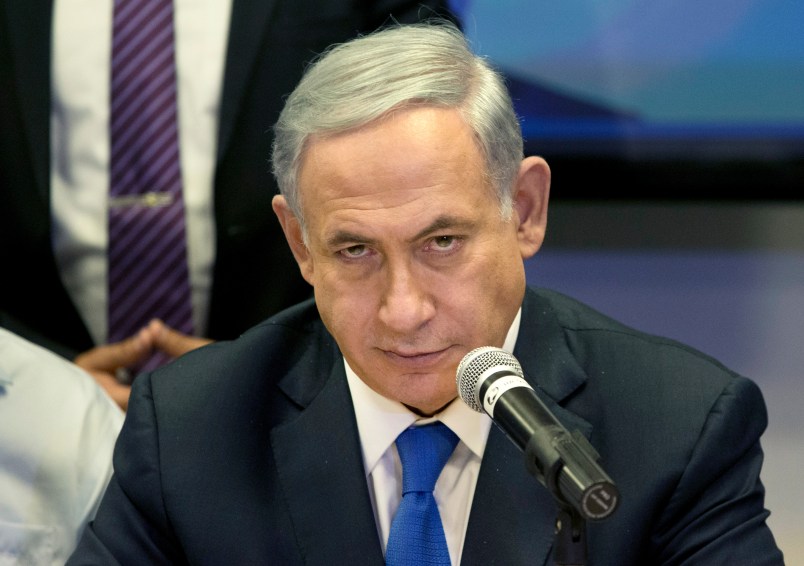JERUSALEM (AP) — Israelis are casting their ballots in national elections widely seen as a test of faith in long-serving Prime Minister Benjamin Netanyahu. Polls have forecast a close race, with Netanyahu focused on security issues while challenger Isaac Herzog of the center-left Zionist Union running on social and economic issues. These are the latest developments:
___
FINAL APPEALS
Leaders of all parties made last-ditch efforts to reach voters after polling stations opened across Israel early Tuesday.
Netanyahu tried to appeal one last time to his hard-line base and reiterated a pledge to prevent the establishment of a Palestinian state. He also took a swipe at Israel’s Arab minority, which is predicted to make big gains after four rival factions joined forces. The comments drew accusations of racism.
Netanyahu’s strategy is risky. If he is re-elected, his comments could further sour ties with the United States, which has made resolving the Israeli-Palestinian conflict a foreign policy goal.
Netanyahu’s chief opponent, Isaac Herzog of the center-left Zionist Union, has promised to revive peace efforts with the Palestinians, repair ties with the United States and reduce the growing gap between rich and poor.
___
VOTER TURNOUT
Election day is a national holiday in Israel, and a high voter turnout was reported.
There are 5,881,696 eligible voters out of some 8.2 million Israelis. Exit polls will be released immediately after voting ends at 10 p.m. (2000 GMT), and official results will trickle in throughout the night.
Voter turnout among Israel’s Arab minority, which makes up about 20 percent of the population, was expected to be higher than in the past thanks to the new unified Arab list.
___
MAIN ISSUES
Netanyahu’s Likud party has been focusing on Israel’s security needs with an emphasis on preventing Iran from obtaining nuclear weapons while taking a tough stance in peace talks with the Palestinians. But after years of a rapidly increasing cost of living and a housing crisis, many Israelis are turning away from him.
The final pre-election polls released Friday showed Herzog with a slight lead ahead of Netanyahu. But with polls notoriously inaccurate and many voters undecided until the last minute, the race was too close to call.
More than 20 other parties are running promising a wide range of platforms, including security hawks, ultra-Orthodox Jewish parties, centrist parties focused on economic issues and the Arab list. Those that receive at least 3.25 percent of the vote win seats in parliament.
___
HOW IT WORKS
Israelis are voting for party lists, not individual candidates for the country’s 120-member parliament, or Knesset. Seats are allocated in the Knesset according to the percentage of the national vote the parties win. No single party has ever won an outright majority of 61 seats, and the country has always been governed by a coalition.
After the vote, Israel’s president meets with party leaders to determine who has the best chance of forming a government. The head of that party will have up to six weeks to form a coalition. If successful, he or she becomes prime minister; if not, the president asks another party leader to try.
Copyright 2015 The Associated Press. All rights reserved. This material may not be published, broadcast, rewritten or redistributed.







Ask Bibi if he cares!